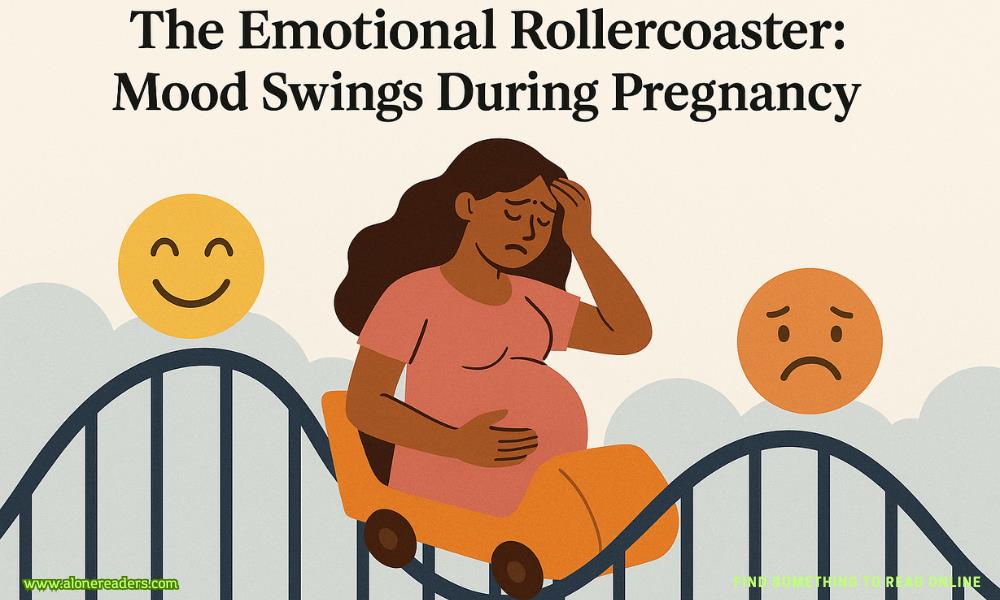
Pregnancy is often portrayed as a beautiful, magical time in a woman’s life—but behind those glowing cheeks and baby bump, many expecting mothers wrestle with a profound emotional upheaval. Mood swings during pregnancy are not just "hormones going wild"; they are a complex interplay of biology, psychology, and social context. Understanding this emotional rollercoaster is crucial—not just for pregnant individuals, but also for partners, family members, and healthcare providers.
Hormonal fluctuations in the first trimester
During the first 12 weeks of pregnancy, the body undergoes intense hormonal changes to support the developing embryo. Estrogen and progesterone levels surge dramatically. Estrogen, which increases serotonin and other neurotransmitters, can elevate mood—but abrupt increases can also destabilize emotional regulation. Progesterone, known for its sedative properties, contributes to fatigue and low motivation, potentially triggering depressive episodes.
Changes in neurotransmitter activity
These hormones affect brain chemistry, especially the regulation of serotonin, dopamine, and norepinephrine. When these neurotransmitters are disrupted, mood instability—ranging from elation to anxiety to sadness—becomes more likely. Some women experience symptoms similar to those of premenstrual syndrome, but often more intense and less predictable.
Fear of the unknown
A major contributor to mood instability is uncertainty—about physical changes, labor, parenthood, or even relationships. Many women report intense self-doubt and fear of failure as mothers, especially first-time moms. The fear can be magnified by societal expectations to appear calm and capable during pregnancy.
Body image and self-perception
Pregnancy changes a woman’s body rapidly. Some embrace it; others find the transformation distressing. Weight gain, skin changes, bloating, and altered mobility can lead to negative self-image, especially in cultures that idealize thinness and physical perfection. These body-related anxieties can spark or worsen mood swings.
Relationship dynamics and support systems
How a partner reacts to the pregnancy greatly influences emotional stability. If a pregnant woman perceives a lack of support—emotional or practical—she is more likely to feel overwhelmed or resentful. On the other hand, strong emotional and logistical support can buffer the impact of hormonal changes.
First trimester: Emotional turbulence and anxiety
Mood swings are often most intense during the first trimester, when hormonal changes peak. Symptoms may include:
At this stage, women may still be hiding the pregnancy, making it harder to seek social support.
Second trimester: A brief emotional reprieve
The "honeymoon phase" of pregnancy is often calmer. Energy returns, nausea subsides, and hormones stabilize. Still, mood swings can occur, especially if new stressors arise (e.g., work stress, financial planning, or medical complications).
Third trimester: Anxiety and emotional overload
As labor approaches, anxiety returns—now focused on childbirth and parenthood. Sleep disturbances and physical discomfort often exacerbate emotional instability. Common symptoms include:
Not all emotional changes are "normal." Sometimes, mood swings cross into clinical territory and require professional attention.
Antenatal depression
Roughly 10–15% of pregnant women experience antenatal (prenatal) depression. Symptoms include persistent sadness, lack of pleasure in daily life, appetite changes, guilt, and social withdrawal. Unlike transient mood swings, these symptoms last for weeks and interfere with functioning.
Anxiety disorders during pregnancy
Some women develop generalized anxiety disorder, panic disorder, or obsessive-compulsive tendencies during pregnancy. Unlike short-lived nervousness, these conditions involve excessive worry, physical symptoms (racing heart, tension), and sleep disruption.
Bipolar disorder
For women with a history of bipolar disorder, pregnancy can trigger episodes of mania or depression. Even women with no psychiatric history may experience new-onset bipolar symptoms, especially if there’s a family history. Manic episodes often present as racing thoughts, extreme irritability, impulsive decisions, or a decreased need for sleep.
Establishing a daily rhythm
Pregnancy often brings chaos. Creating a predictable routine (meals, rest, light exercise, social time) helps regulate mood. The brain craves rhythm—especially when hormones and emotions are out of sync.
Prioritizing sleep hygiene
Sleep disruption is common during pregnancy, but chronic sleep loss worsens mood swings. Tips include:
Nutritional balance for mood stability
Blood sugar swings from irregular eating can mimic emotional outbursts. Diets rich in whole grains, lean protein, omega-3 fats (from fish or supplements), and complex carbohydrates stabilize both mood and energy levels. Deficiencies in folate, iron, and vitamin D can also influence emotional health.
Regular physical movement
Light to moderate exercise, like walking, swimming, or prenatal yoga, reduces cortisol (the stress hormone) and increases endorphins. Movement not only boosts mood—it improves sleep and combats fatigue.
Talking to someone who listens
Emotional support can come from many sources: partners, friends, therapists, or support groups. Speaking openly about fears or frustrations is cathartic and reduces isolation.
Mindfulness and cognitive-behavioral techniques
Structured therapy isn’t always necessary—many women benefit from journaling, practicing gratitude, or identifying thought patterns that fuel anxiety. Guided apps or prenatal mental health classes can be helpful, especially in urban areas where professional help is more accessible.
If mood changes begin to interfere with functioning—difficulty working, inability to sleep, thoughts of self-harm, or withdrawing from loved ones—consult a healthcare provider immediately. Screening for depression and anxiety is part of modern prenatal care, and early intervention ensures better outcomes for both mother and baby.
Common therapeutic options include:
Mood swings during pregnancy don’t affect only the mother—they impact the entire household. Partners often feel confused, helpless, or even blamed for emotional episodes. The key is empathy.
Final Thoughts: Embracing Emotional Complexity
Pregnancy is not a single emotion. It’s awe and terror. Joy and confusion. Empowerment and vulnerability. Understanding the biology and psychology of mood swings is not about “fixing” them—it’s about making space for them, validating them, and creating a framework to cope with them.
Every woman’s emotional journey during pregnancy is unique. But with awareness, preparation, and support, the ride—while bumpy—can be deeply transformative.